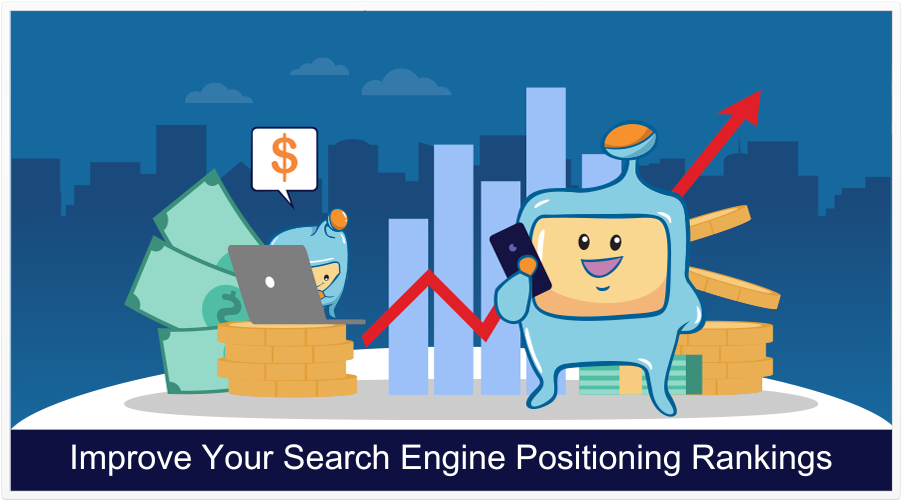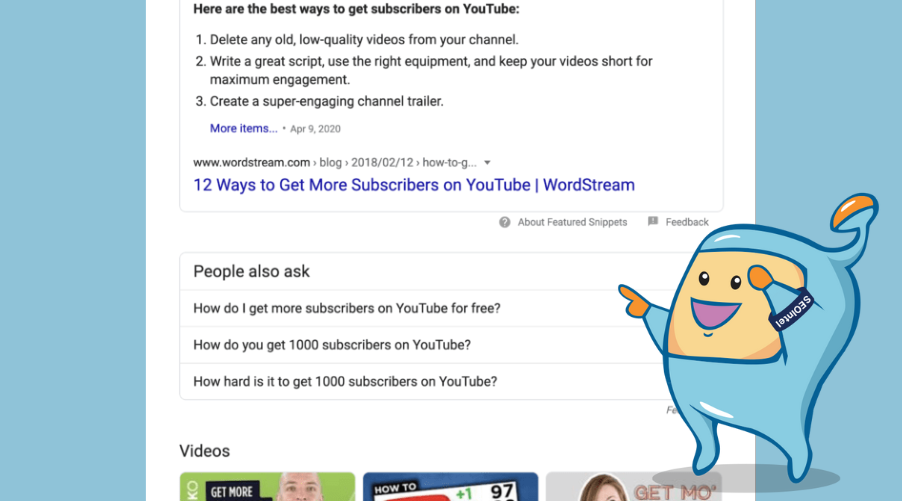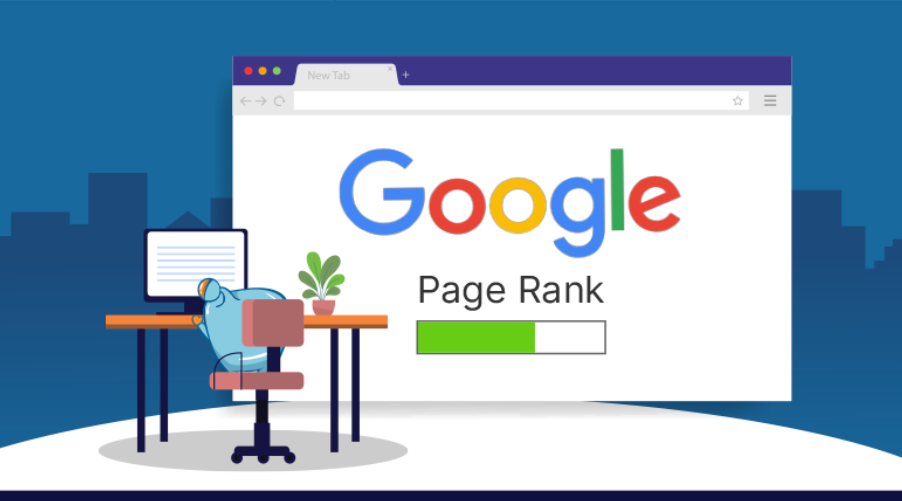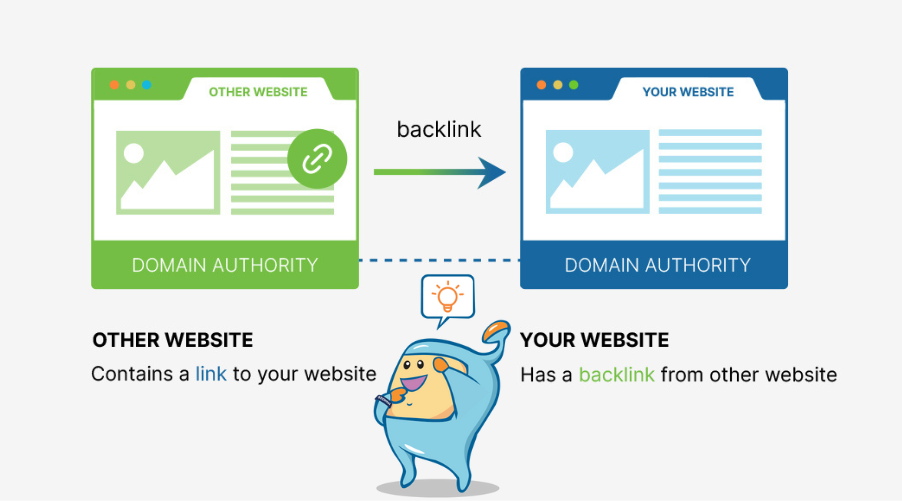
In today’s digital age, it’s more important than ever to have a strong online presence with your search engine positioning.
One of the best ways to achieve this is to improve your search engine rankings.
By ranking higher in search results, you can attract more visitors to your website, which can lead to increased sales, leads, and brand awareness.
There are a number of factors that can affect your search engine rankings, including the quality of your content, the use of keywords, and the structure of your website. In this article, we will discuss some of the most important tips for improving your search engine rankings in 2023.
Here is what you will learn about Search Engine Positioning in this article:
Search engine rankings refers to the practice of optimizing a website’s visibility and ranking in search engine results pages (SERPs).
It involves various strategies and techniques aimed at improving a website’s position to attract more organic traffic and increase online visibility.
It is well known in SEO circles that the majority of organic clicks go to the top three search results. Moving up even one position can result in a 30% increase in click-through rate (CTR).
However, it’s important to note that search engine positioning is no longer solely focused on achieving higher rankings in Google.
The traditional concept of the Google search engine results page (SERP) has evolved beyond a simple list of blue links.
Nowadays, Google’s first page includes various “SERP Features” such as:
To illustrate this, let’s take a look at an example SERP on the topic of gaining more YouTube subscribers.

As you can see, the SERP contains a prominently featured snippet box, video results, and other elements. This means that improving your search engine positioning requires more than just climbing a few spots.
It involves maximizing your “SERP real estate” by aiming for the highest possible ranking, potentially appearing multiple times on the same page, and obtaining rich snippets to make your site stand out from the competition.
While search engine positioning and search engine optimization (SEO) are related, they have distinct differences.
SEO is a broader term that encompasses all the tactics used to enhance a website’s visibility in search engines.
On the other hand, search engine positioning specifically focuses on the specific rank a website holds within search results for targeted keywords or phrases.
Search engine ranking offers several advantages for businesses aiming to establish a strong online presence and attract potential customers.
By improving your search engine positioning, you can significantly increase organic traffic to your website.
When your website appears higher in search results, users are more likely to click on your link, leading to a greater influx of visitors. This increased traffic provides opportunities for conversion and helps grow your customer base.
Achieving a higher search engine position allows you to outrank your competitors in relevant search queries. When users find your website before others in the industry, you gain a competitive edge.
This can result in increased brand visibility, credibility, and potential conversions, ultimately driving business growth.
Higher search engine positioning can enhance your reputation as an industry expert or thought leader.
When your website consistently ranks well in search results, users perceive you as a credible source of information.
This boosts your brand’s reputation, increases trust among your audience, and helps establish you as a go-to resource in your niche.

If you want to assess the position of a specific page within search engine results, there are various tools and apps available for in-depth analysis.
These tools provide valuable insights into your website’s performance, keyword rankings, and visibility. By monitoring your page’s position, you can make data-driven decisions to improve your search engine positioning.
To determine the position of a page in a search engine results page (SERP), it’s important to understand that rankings fluctuate over time.
While you may hold the top spot for a specific term at noon, your position could vary for someone on a different device just an hour later. Instead of focusing on specific moments, it’s more reliable to consider the average ranking position to gain insights into your performance.
Google Search Console is a valuable tool for assessing your average ranking position. By accessing this platform, you can quickly identify where specific terms are ranking and observe the average position.
Additionally, it provides information on the click-through rate, allowing you to evaluate the effectiveness of your current position. If you find that the response is not as desired, it may be beneficial to edit or enhance your meta description to make it more compelling for users.
For a more comprehensive analysis, there are excellent apps and tools available in the market. SEMRush and Ahrefs are two highly regarded options in the industry.
These tools offer robust features that can provide in-depth insights into your search engine positioning, keyword rankings, competition analysis, and more.
By leveraging these tools, you can gain a deeper understanding of your performance and make data-driven decisions to optimize your search engine rankings.
When discussing search engine positioning on Google, it’s crucial to emphasize that it is not a one-time or sporadic effort that yields immediate results.
Instead, it is a multifaceted process that requires consistent and ongoing work to maintain high-ranking positions.
As you expand your keyword strategy from a few dozen to a few hundred keywords, it becomes even more important to apply consistent practices that help drive organic traffic and improve your search engine positioning.
The landscape of search engines is dynamic, with algorithm changes occurring every few months. To stay ahead of these changes and maintain your positioning, it’s essential to stay informed and continually strive for improvement.
Here are some valuable tips and tricks to maximize your search engine positioning on Google:
Stay updated with algorithm changes: Keep a close eye on search engine updates and algorithm changes.
It’s important to know the latest trends, best practices, and algorithmic adjustments to adapt your strategies accordingly.
Meta tags and descriptions provide brief summaries of your web pages in search engine results.
By updating these with relevant key phrases, you can improve your search engine positioning.
Ensure that your meta tags and descriptions accurately reflect the content on each page, enticing users to click through. Include targeted keywords naturally to enhance the relevance and visibility of your pages in search results.
Revisit your existing content to ensure it aligns with current SEO best practices. Identify opportunities to optimize your content by:
Develop high-quality content: Content remains a fundamental aspect of search engine positioning. Focus on creating compelling, informative, and valuable content that resonates with your target audience.
Optimize your content with relevant keywords to enhance its visibility and relevance.
Keyword cannibalization occurs when multiple pages on your website compete for the same keyword or phrase. This can confuse search engines and dilute the relevance and authority of your content. To avoid keyword cannibalization:
Internal linking refers to linking relevant pages within your own website. This practice helps search engines understand the structure and hierarchy of your website, while also guiding users to related content.
It is essential to utilize internal linking to establish contextual connections between different sections of your website.
Let’s illustrate this with an example:
Imagine you’re a child behaviorist providing advice in a blog post about managing aggression in children. Within that post, you suggest ASMR as a solution and provide a link to a page that details the ASMR process.
This internal linking practice allows users to conveniently access the information they need without having to return to search engines or visit external websites. All the relevant information is readily available at their fingertips.
From Google’s perspective, internal linking serves a more abstract purpose. When Google examines your page on child aggression and discovers links to related topics such as ASMR, anger control training, proper diet, and breathwork, it recognizes the interconnectedness of your website’s content.
As a result, Google assumes that your entire website, including the current page, revolves around children. Consequently, Google begins to explore additional keywords that may not be your primary targets.
Over time, your website can start ranking for these additional keywords.
The outcome? An increase in organic traffic and an expanded list of relevant keywords that you can refine and optimize for other sections of your website.
By leveraging internal linking effectively, you not only enhance the user experience by providing easy access to related information but also signal to search engines the breadth and depth of your website’s content.
This holistic approach to internal linking contributes to improved search engine visibility, increased organic traffic, and the opportunity to rank for a wider range of keywords across your website.
Tip: When implementing internal links, use descriptive anchor text that includes relevant keywords. Be mindful of creating a natural and user-friendly linking structure throughout your website.

Build authoritative backlinks: Earn high-quality backlinks from reputable and relevant websites.
Backlinks play a significant role in search engine positioning, demonstrating the credibility and authority of your website.
Optimize on-page elements: Pay attention to on-page optimization factors, such as meta tags, headings, URL structure, and image alt tags.
Ensure they align with your target keywords and accurately describe the content of your pages.
Enhance user experience: User experience is a critical factor in search engine positioning. Improve site speed, mobile-friendliness, and navigation to provide a seamless and engaging experience for your visitors.
One important factor in search engine positioning is the loading time of your website. Slow-loading websites can negatively impact user experience and search rankings.
To improve your website’s loading time, consider the following steps:
Leverage social media presence: Develop a strong presence on relevant social media platforms. Promote your content, engage with your audience, and encourage social sharing to increase visibility and drive organic traffic.
Monitor and analyze performance: Regularly monitor your search engine positioning and performance metrics using tools like Google Analytics.
Analyze the data to identify areas of improvement and optimize your strategies accordingly.
XML sitemaps provide search engines with a clear structure of your website, helping them discover and index your pages more efficiently.
Submitting your XML sitemaps to search engines like Google and Bing can improve your search engine positioning. Regularly update and submit your sitemaps whenever you make significant changes to your website’s structure or content.
One simple yet effective step to improve your website’s search engine positioning is to submit XML sitemaps to Google and Bing. This practice ensures that search engines are aware of your website’s pages and can index them accurately.
Here’s why it’s important and how to approach it:
Think of it as a Party Invitation.
Imagine you’re hosting a party, but your guests don’t know how to reach your place. Even if they do, they might struggle to locate your front door or find an alternative entrance.
XML sitemaps serve as invitations, providing search engines with a clear roadmap to your website’s pages.
While Google and Bing automatically crawl websites to identify changes, manually submitting XML sitemaps is a faster and more direct way to inform search engines about your website’s structure and content.
This is especially beneficial if you regularly add new content, as it ensures timely indexing of fresh pages.
The frequency of resubmitting your XML sitemaps depends on your content calendar and update frequency. As a general guideline, submitting them once or twice a month is often sufficient.
However, if your website experiences frequent content additions or updates, you may consider a more frequent submission schedule.
By taking the time to submit your XML sitemaps, you empower search engines to crawl and index your pages effectively, ultimately improving your website’s visibility and search engine positioning.
Remember, search engine positioning is an ongoing process that requires dedication, adaptability, and a commitment to providing value to your audience.
By implementing these tips and continually refining your approach, you can maximize your search engine positioning on Google and achieve long-term success.
To achieve optimal search engine positioning, it’s crucial to implement a clear and comprehensive strategy.
Regularly check your website loading time, update meta tags and descriptions with key phrases, re-optimize existing content, submit XML sitemaps, utilize internal linking effectively, and avoid keyword cannibalization.
By following these steps and staying up to date with SEO best practices, you can improve your website’s visibility, attract more organic traffic, and ultimately rank higher in search engine results.